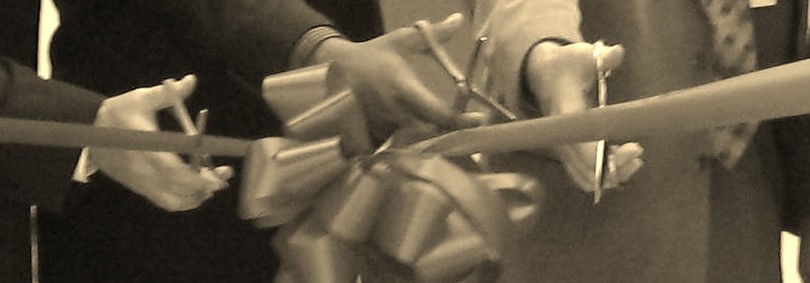
Contract administration is a crucial aspect of any architectural project. It involves managing the contracts and agreements between the architect, client, contractors, and suppliers throughout the construction process. Efficient contract administration ensures that projects are completed on time, within budget, and according to the agreed-upon specifications. It also helps to mitigate risks, resolve disputes, and maintain a positive relationship between all parties involved.
The Importance of Efficient Contract Administration
Efficient contract administration is vital for the success of architectural projects. It ensures everyone understands their roles and responsibilities, minimizing the likelihood of misunderstandings or conflicts. Through effective administration, architects can maintain control over the project, ensuring it adheres to the design intent and quality standards.
Moreover, efficient contract administration helps manage costs and keep the project within budget. It allows architects to monitor contractors’ progress, track expenses, and identify potential cost overruns. By addressing issues promptly, architects can prevent delays and costly rework, ultimately saving time and money.
Challenges in C. A. and How an Architectural Technologist Can Help
Contract administration is a complex process that involves numerous tasks, documents, and stakeholders. It requires meticulous attention to detail, excellent organizational skills, and a deep understanding of construction contracts and legalities. However, many architects struggle to juggle these responsibilities while focusing on design and project management.
This is where an architectural technologist can make a significant difference. An architectural technologist is a professional who specializes in the technical aspects of architecture, including contract administration. With their expertise in construction projects and contract administration, they can alleviate the burden on architects and ensure the smooth execution of all contractual obligations.
The Role of an Architectural Technologist in Contract Administration
Architectural technologists play a vital role in contract administration, acting as a bridge between the architect, contractors, and clients. They are responsible for interpreting and implementing the terms and conditions of the contracts, ensuring that all parties fulfill their obligations. To identify discrepancies or potential issues, they meticulously review contract documents, including drawings, specifications, and schedules.
Furthermore, architectural technologists closely monitor construction progress, conducting regular site visits and inspections. They document the work completed, verify contract compliance, and promptly address any deviations or deficiencies. Their attention to detail and technical expertise help maintain quality standards and ensure the project aligns with the architect’s vision.
Introduction to RForm Contract Administration Software
RForm provides a centralized platform for architects, contractors, and clients to collaborate and manage contract-related documents. It allows users to create and track contracts, change orders, RFIs (Requests for Information), and other essential project documents. The software automates various administrative tasks, such as document distribution, tracking revisions, and generating reports. This automation saves time, reduces errors, and improves overall productivity.
Contract Administration Software offers several features that significantly improve efficiency in architectural projects. Firstly, it simplifies document management by providing a secure and organized repository for all contract-related files. Architects can easily access and share documents with stakeholders, ensuring everyone has the most up-to-date information.
Secondly, it facilitates effective communication and collaboration between all parties involved. It allows architects to send RFIs, receive responses, and track the progress of each inquiry. This streamlined communication process reduces delays and prevents misunderstandings, enabling swift resolution of issues.
Moreover, CA software automates the tracking and management of change orders, ensuring that any modifications to the contract are properly documented and executed. It generates change order requests, tracks approvals, and allows for updates to project schedules and budgets accordingly.
How an Architectural Technologist and RForm Improved Contract Administration
To illustrate the impact of an architectural technologist and RForm software on contract administration, let’s consider a case study. An architectural technologist was assigned to oversee contract administration in a large-scale commercial project. By utilizing RForm software, the technologist streamlined the entire process, significantly improving efficiency and project outcomes.
The technologist utilized RForm software to create and manage contracts, change orders, and RFIs. This allowed seamless communication and collaboration between the architect, contractors, and clients. Furthermore, the software’s automation capabilities reduced administrative tasks, freeing up time for the technologist to focus on other critical aspects of the [project administration.
The technologist’s attention to detail and expertise in architecture and contract administration ensured that all contractual obligations were fulfilled. They conducted regular site visits, diligently documented progress, and promptly addressed any issues or deviations from the contract. This proactive approach helped to prevent delays, maintain quality standards, and ensure client satisfaction.
The Future of Contract Administration in Architectural Projects
As architectural projects continue to evolve and become more complex, the role of contract administration will become increasingly critical. The demand for architectural technologists with expertise in contract administration is expected to rise as architects recognize the value they bring to project efficiency and success.
Furthermore, technological advancements, such as the RForm Contract Administration Software, will continue to reshape the contract administration landscape. These innovations will further streamline processes, automate tasks, and enhance collaboration, enabling architects and technologists to focus on achieving project goals.
Conclusion
Efficient contract administration is essential for the success of architectural projects. By entrusting contract administration to architectural technologists, architects can maximize efficiency, minimize risks, and ensure the smooth execution of projects. The expertise of architectural technologists, combined with innovative software solutions like RForm, enables architects to focus on design and project management while maintaining control over the contractual aspects.
To experience the benefits of RForm Contract Administration Software firsthand, architects and technologists are encouraged to attend an RForm demo. By embracing the collaboration between technology and human expertise, architectural professionals can elevate contract administration and propel architectural projects toward greater efficiency and success.

